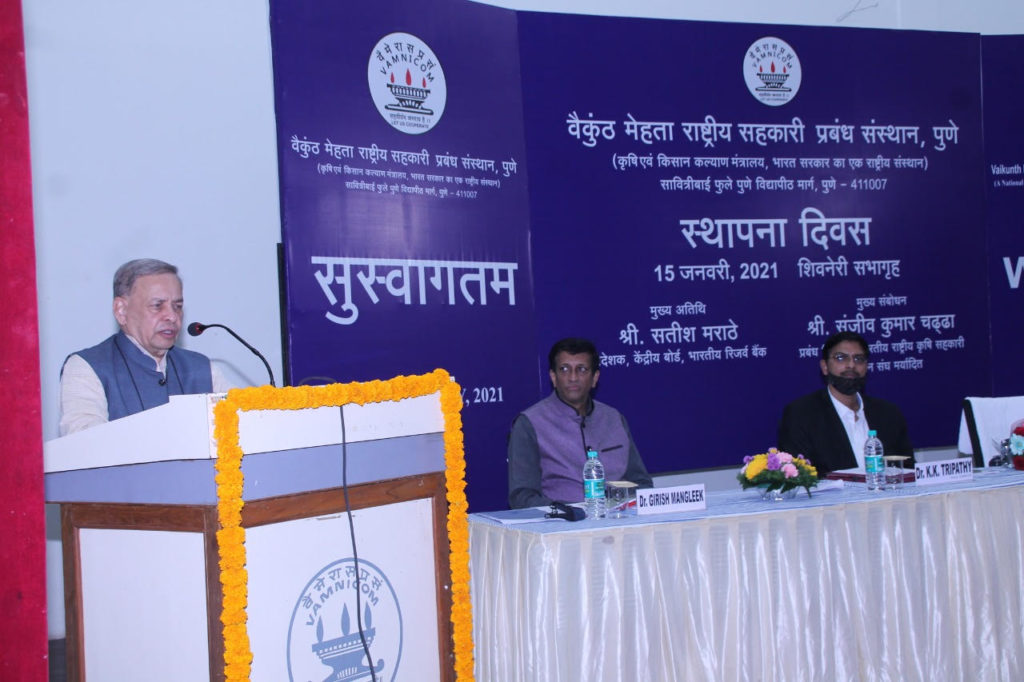Pune based Vaikunth Mehta National Institute of Cooperative Management (Vamnicom) celebrated its Foundation Day last Friday in which Satish Marathe, RBI Director was the Chief Guest and Sanjeev Kumar Chadha, Managing Director of Nafed was the Guest of Honour. Hemant Kumar, Joint Commissioner, GST Department, Central Government was also present on this occasion, among others.
The Foundation Day function began with Dr K KTripathy, Director welcoming the guests and briefing the audience about the role the Institute plays in the area of management education, training, research and consultancy assignments.
Tripathy explained how the Institute is offering Higher Education through restructured PGDM-ABM to cater to the market demand for skilled agri-managers. He also mentioned about the restructured PGDCBM Programme and Diploma in Management of Computer Operations benefitting IT officials of Cooperatives and Government Departments.
Vamnicom’s achievements in the area of research, consultancy assignments and related academic aspects viz., working paper series, international publication of books, cooperative case studies were also discussed.
Nafed MD Sanjeev Kumar Chadha emphasized on strengthening of cooperatives by addressing their structural issues. He focussed on the promotion of FPOs and similar forms of new-age organizations for collective growth.
Satish Marathe, Director, Central Board, Reserve Bank of India, Chief Guest of the Program in his address acknowledged the role of VAMNICOM being played in the capacity development of cooperatives. He said India has the largest Cooperative Movement with 28 crore members and 8.5 lakh cooperatives.
Marathe felt the cooperative sector has lost its pace of development post-liberalization in 1991 due to non-amendment of acts. The old set of co-op acts were more control oriented, offering little autonomy to cooperatives for their development, felt Marathe. Appreciating the Multi State Cooperative Societies Acts, he said these provide more autonomy and administrative freedom but sadly, the number of cooperatives having multistate presence have not seen much rise.
Strengthening agri-allied activities, formation of new kinds of cooperatives and focusing on agri water provision, storage facility, agri mechanization would be resulting into tapping of unutilized resources in rural economy, Marathe said.
Recent developments in the banking sector are making it possible to reach out to rural people associated with cooperatives. They are being integrated to the national payment gateway leading to a robust financial inclusion process. The cooperative sector requires to update cooperative law and build an army of professionals to manage cooperatives, Marathe felt.
On this occasion Dr. Girish Manglik, Associate Professor made a presentation about the activities of the Institute and V. Sudhir, Registrar of the Institute gave a vote of thanks.
It bears recall that Vamnicom is an ace co-op training institute, working towards agriculture and cooperative training, research and management. It organizes international, national and local level training programs on various areas of collectives’ management in general and cooperatives in particular.
